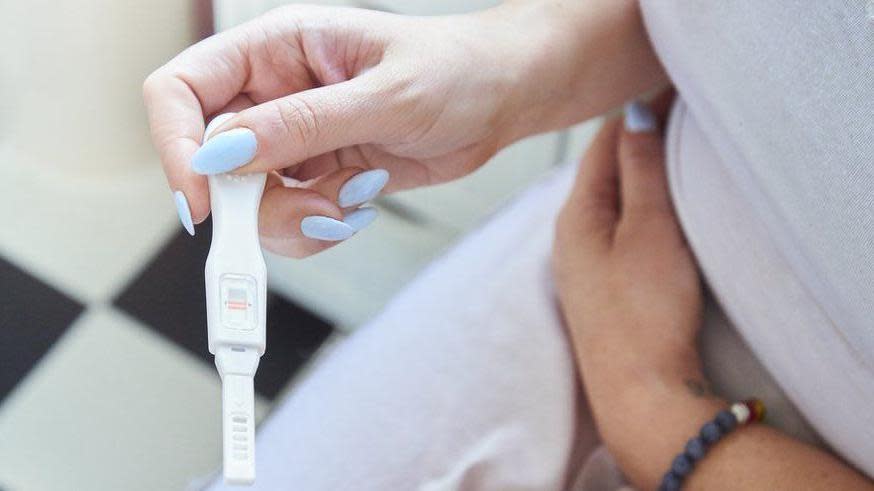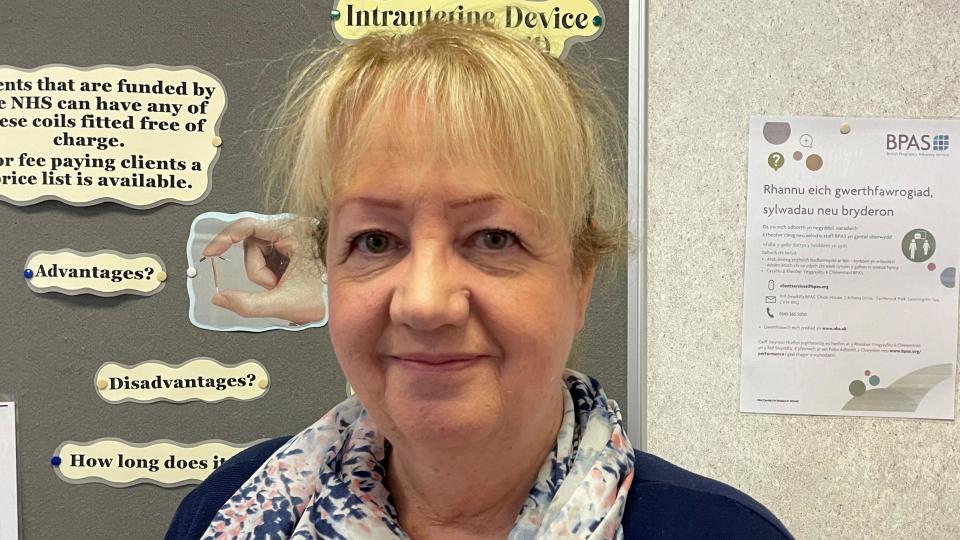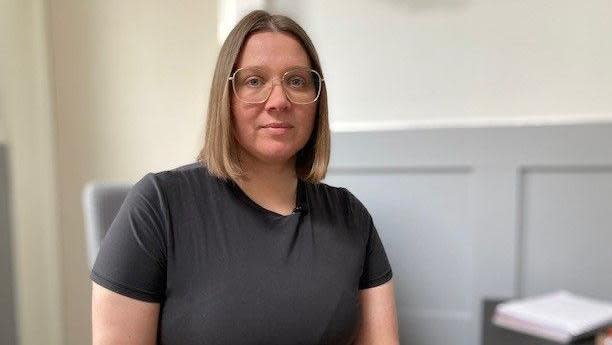Women crossing UK borders for abortions 'shocking'

A woman who had to travel from Wales to England for an abortion says it made her experience more traumatic.
Katie, 35 and from Cardiff, was thrilled to be pregnant with her first child, but a routine scan found a significant abnormality meaning her baby could not survive.
An abortion locally would have involved giving birth in a labour ward full of mothers and newborn babies, and Katie had to travel over the border for a surgical procedure.
In Wales, most health boards refer women needing surgical abortions after 18 weeks for treatment in England.
The Welsh government said providers were expected to ensure access to “evidence-based support for reproductive choices, including abortion”.
'The healthcare I needed wasn't available'
Katie and her partner were told their baby was unlikely to survive.
She said she felt additional trauma at being told, at more than 17 weeks’ pregnant, that a surgical abortion was not available on her side of the border.
“To be told that was not an option for me in Wales, to be told that the health care I needed wasn’t available in my home country and to have to go to an unfamiliar place, was really shocking actually and really upsetting,” she said.
Instead, her only option was to deliver her baby on a labour ward surrounded by mothers and their newborns.
After contacting the British Pregnancy Advisory service (BPAS), Katie chose to have a surgery under general anaesthetic in Bournemouth, spending “four figures” on accommodation and waiting four days so they could bring their baby’s ashes home.
“I'm obviously devastated that we lost our baby, but we are looking forward," she said.
“I’m hoping to have another baby at some point, and I'm telling you now that the only reason that is possible is because I was able to access a procedure that was less traumatic for me.
“If I had not had that choice, I think psychologically, the effects on me would be far, far worse,” she added.

In Wales, England and Scotland, abortion is legal up to 24 weeks of pregnancy with the approval of two doctors.
Viv Rose, who has been running the BPAS clinic in Cardiff for 19 years, said it was hard to tell women after the 18-week mark they must travel for the treatment.
“It’s horrendous to be honest, because every single Welsh woman that requires a termination post-18 weeks, we have to send to one of our specialist clinics and they normally go to Richmond in London,” she said.
She added around 100 women from south Wales every year are referred for treatment in England.
The centre in Cardiff takes NHS referrals from 12 weeks and can perform abortions up to 18 weeks under conscious sedation.
What is surgical abortion?
Surgical abortion involves an operation to remove the pregnancy from the womb.
It may be done with local anaesthetic, conscious sedation, or general anaesthetic.
According to the NHS, the surgical method can be performed by vacuum or suction aspiration or by dilation and evacuation.
In Wales, most health boards said they referred patients 18 weeks and later to BPAS for treatment in England, with Hywel Dda offering treatment in Glangwili Hospital up to 19 weeks and six days.
“We’ve been in tears here sometimes because we've had women turn to us and say, ‘well, I'll have to continue the pregnancy then’, because they actually find it easier to continue the pregnancy than to travel to London to get a termination,” she said.
Ms Rose described the “ripple effect” of women being forced to tell family or friends as they juggle work and childcare.
“We get asked that all the time, ‘why can’t I access it here?’ And I don’t know. Why can’t they?” she added.
Dr Caroline Scherf, a gynaecologist working for the NHS, said second trimester abortion was one of many areas where women’s healthcare was falling behind.
“It is not a lot of women, but those women really need help, and it is not right they can’t access treatment in Wales,” she added.
The secretary for the British Society of Abortion Care Providers (BSACP) added that NHS staff were undoubtedly overworked, and services were stretched, but “putting abortion care in job plans and thus re-establishing this routine NHS service means future doctors’ training could be done if there was an appetite to do so”.

The Women’s Equality Party in Wales has launched a campaign calling on the health secretary to prioritise abortion care and make sure the procedure is offered in Wales on the NHS.
A spokesperson for the Welsh government said they were “committed to improving health services for women and girls”.
“The National Clinical Lead for Women’s Health has been appointed and will lead on the development of the NHS Wales Women’s Health Plan,” they added.

